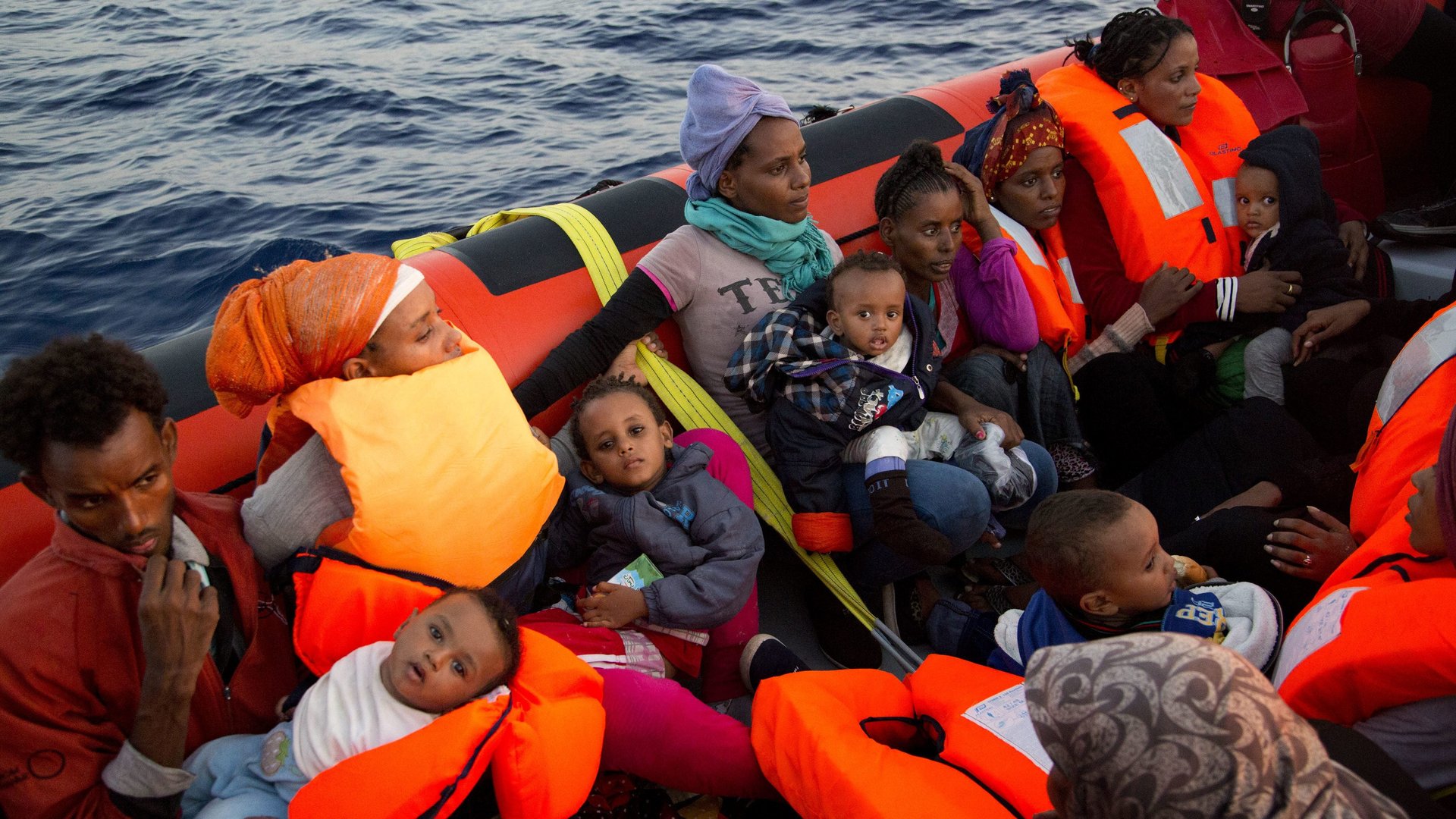On Holocaust Remembrance Day, president Donald Trump repeated one of the US’s most tragic errors
On the morning of yesterday’s Holocaust Remembrance Day—when the world pauses to honor the millions killed by the Nazis, and promises to never forget the horrific event—US president Donald Trump made a promise: “In the name of the perished, I pledge to do everything in my power throughout my Presidency, and my life, to ensure that the forces of evil never again defeat the powers of good. Together, we will make love and tolerance prevalent throughout the world.”


On the morning of yesterday’s Holocaust Remembrance Day—when the world pauses to honor the millions killed by the Nazis, and promises to never forget the horrific event—US president Donald Trump made a promise: “In the name of the perished, I pledge to do everything in my power throughout my Presidency, and my life, to ensure that the forces of evil never again defeat the powers of good. Together, we will make love and tolerance prevalent throughout the world.”
Yet only hours later he moved in the opposite direction. With an executive order, he shut the United States to all refugees for the next four months, and to Syrian refugees indefinitely, and he imposed a 90-day ban on entry to the US from seven Muslim-majority nations. Already, people are being stopped and refused entry at US airports. The US may decide to block refugees from some countries entirely in the future, and could expand the list of countries subject to “extreme vetting” or to a total refugee ban.
It’s a complete about-face from legislation the US crafted after it made tragic, fatal mistakes in handling refugees from Europe during WWII. In 1939 the US turned away Jews seeking a safe haven from the Nazi regime who had arrived at the US border, and many ended up being murdered at concentration camps. To commemorate this, a Holocaust Remembrance Day project tweeted out the names and tragic stories of passengers from a German ship that was full of Jews fleeing the Third Reich.
The rationale for rejecting refugees fleeing violence at the US border, then as now, was that they could pose a threat to the US.
To acknowledge this mistake, the US passed the Displaced Persons Act of 1948, which pledged to take in up to 220,000 victims of the war in Europe after the conflict had ended. These included “a person who, having resided in Germany or Austria, was a victim of persecution by the Nazi government and was detained in, or was obliged to flee from such persecution,” as well as their families and orphans.
In banning refugees and vetting Muslims, Trump referenced safety in the US, even though no one from the countries specifically mentioned has carried out a fatal attack on the US in two decades, and the order omits countries with a history of exporting terrorism.
“I’m establishing new vetting measures to keep radical Islamic terrorists out of the United States of America,” Trump said while signing the orders at the Pentagon in Washington, DC. ”We only want to admit those into our country who will support our country and love deeply our people. We will never forget the lessons of 9-11, nor the heroes who have lost their lives at the Pentagon.”
The order suspends all citizens from Iraq, Syria, Iran, Sudan, Libya, Somalia, and Yemen from entry for three months and makes these citizens subject to what Trump has called “extreme vetting.” Notably, the list does not include Saudi Arabia, the country where 15 of the 19 terrorists who committed the Sept. 11, 2001 attacks came from, or Pakistan, a country often involved in terrorist incidents, nor several other countries deemed “of particular concern” by the State Department in 2016.
The order was quickly criticized by civil rights groups. ”‘Extreme vetting’ is just a euphemism for discrimination against Muslims,” the American Civil Liberties Union said in a statement. The practice “flies in the face of the constitutional principle that bans the government from either favoring or discriminating against particular religions,” and violates the First Amendment, the group said.
Progressive organizations aren’t the only ones to say the Muslim ban doesn’t align with American values. Many from Trump’s own Republican party have expressed abhorrence for the idea, including vice president Mike Pence, who publicly criticized the idea as “offensive and unconstitutional” before he joined Trump’s ticket.
In 2015, the largest group of refugees the US took in was from Burma, followed by Iraq, which was devastated by the US-led invasion.
The US accepted 85,000 refugees in 2016, about half of them from Muslim countries, a very small number when compared to other host countries. The executive order calls the admission of over 50,000 refugees a year ”detrimental.”